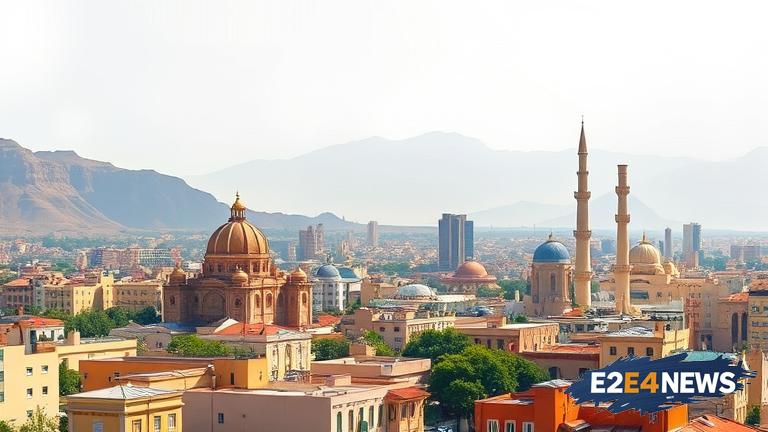Algeria, a country located in the Maghreb region of North Africa, has been making significant strides in recent years to establish itself as a major player in the African economy. With a rich history dating back to the ancient times, Algeria has a unique cultural heritage and a strategic location that makes it an important hub for trade and commerce. The country’s economy has been driven by its vast natural resources, including oil and gas, which have been the mainstay of its economy for decades. However, in recent years, Algeria has been diversifying its economy, with a focus on developing its manufacturing, agriculture, and tourism sectors. This diversification has been driven by the government’s efforts to reduce its dependence on oil and gas exports and to promote economic growth and development. As a result, Algeria has seen significant growth in its non-oil sectors, including manufacturing, construction, and services. The country has also been investing heavily in its infrastructure, including roads, ports, and airports, to improve its connectivity and facilitate trade. Algeria’s strategic location, which provides access to the Mediterranean Sea and the Atlantic Ocean, makes it an important transit point for trade between Europe, Africa, and the Middle East. The country has also been strengthening its trade relationships with other African countries, as well as with countries in Europe, Asia, and the Americas. In recent years, Algeria has signed several trade agreements, including the African Continental Free Trade Area (AfCFTA) agreement, which aims to create a single market for goods and services across the African continent. Algeria has also been a key player in the Arab Maghreb Union, a regional economic organization that aims to promote economic integration and cooperation among its member states. The country’s growing economy has also been driven by its large and young population, which provides a significant workforce and a growing consumer market. Algeria has also been investing in its education and training sector, to develop the skills and knowledge of its workforce and to promote innovation and entrepreneurship. The country has also been promoting its tourism sector, which offers a rich cultural heritage, including ancient ruins, historic cities, and natural wonders. Algeria’s tourism sector has been growing rapidly in recent years, with a significant increase in tourist arrivals and revenues. The country has also been investing in its renewable energy sector, including solar and wind power, to reduce its dependence on fossil fuels and to promote sustainable development. Overall, Algeria’s emergence as a major player in the African economy is driven by its strategic location, rich natural resources, and growing trade relationships, as well as its efforts to diversify its economy, invest in its infrastructure, and promote economic growth and development. With its large and young population, rich cultural heritage, and growing economy, Algeria is well-positioned to play a leading role in the African economy in the years to come. The country’s growing economy is also expected to have a positive impact on the region, promoting economic growth and development, and reducing poverty and inequality. Algeria’s emergence as a major player in the African economy is also expected to promote greater economic integration and cooperation among African countries, and to strengthen the continent’s position in the global economy. As the African economy continues to grow and develop, Algeria is likely to play an increasingly important role, driven by its strategic location, rich natural resources, and growing trade relationships. The country’s growing economy is also expected to promote greater investment and trade between Algeria and other countries, including those in Europe, Asia, and the Americas. In conclusion, Algeria’s emergence as a major player in the African economy is a significant development that is expected to have a positive impact on the region and the continent as a whole.





